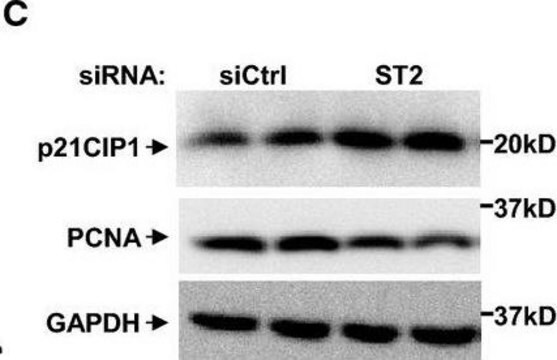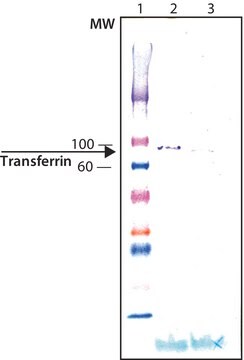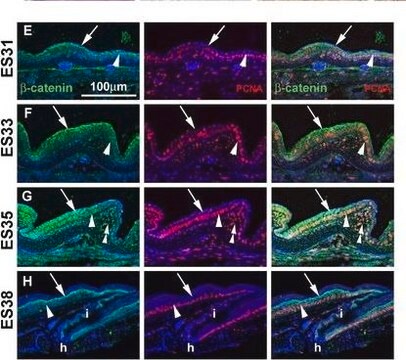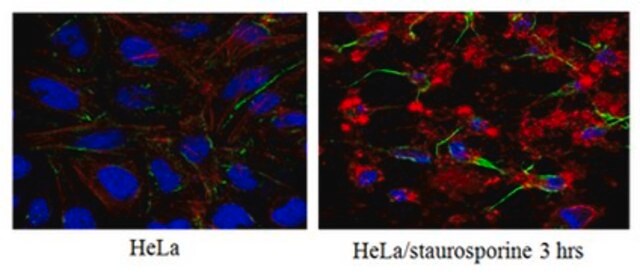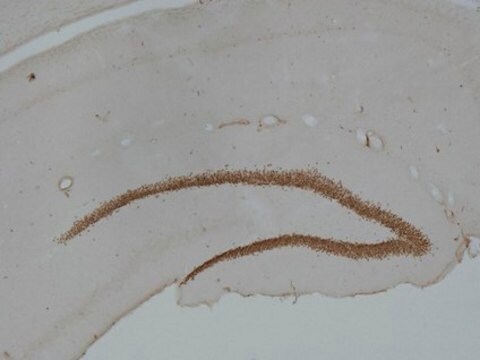05-347
Anti-PCNA Antibody, clone PC10
clone PC10, Upstate®, from mouse
About This Item
Produtos recomendados
fonte biológica
mouse
Nível de qualidade
forma do anticorpo
culture supernatant
tipo de produto de anticorpo
primary antibodies
clone
PC10, monoclonal
reatividade de espécies
vertebrates
fabricante/nome comercial
Upstate®
técnica(s)
immunocytochemistry: suitable
immunohistochemistry: suitable
western blot: suitable
Isotipo
IgG2aκ
nº de adesão NCBI
nº de adesão UniProt
Condições de expedição
wet ice
modificação pós-traducional do alvo
unmodified
Informações sobre genes
human ... PCNA(5111)
Descrição geral
Especificidade
Imunogênio
Aplicação
Epigenetics & Nuclear Function
Cell Cycle, DNA Replication & Repair
Qualidade
Descrição-alvo
forma física
Armazenamento e estabilidade
Nota de análise
Positive Antigen Control: Catalog #12-301, non-stimulated A431 cell lysate. Add 2.5µL of 2-mercaptoethanol/100µL of lysate and boil for 5 minutes to reduce the preparation. Load 20µg of reduced lysate per lane for minigels.
Informações legais
Exoneração de responsabilidade
Não está encontrando o produto certo?
Experimente o nosso Ferramenta de seleção de produtos.
Código de classe de armazenamento
12 - Non Combustible Liquids
Classe de risco de água (WGK)
WGK 2
Ponto de fulgor (°F)
Not applicable
Ponto de fulgor (°C)
Not applicable
Certificados de análise (COA)
Busque Certificados de análise (COA) digitando o Número do Lote do produto. Os números de lote e remessa podem ser encontrados no rótulo de um produto após a palavra “Lot” ou “Batch”.
Já possui este produto?
Encontre a documentação dos produtos que você adquiriu recentemente na biblioteca de documentos.
Nossa equipe de cientistas tem experiência em todas as áreas de pesquisa, incluindo Life Sciences, ciência de materiais, síntese química, cromatografia, química analítica e muitas outras.
Entre em contato com a assistência técnica
